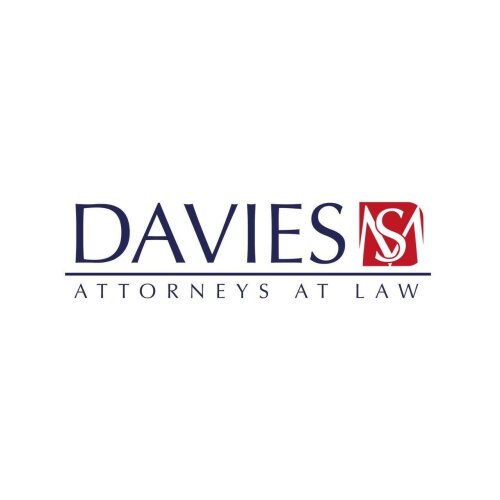Best Copyright Lawyers in Cambodia
Share your needs with us, get contacted by law firms.
Free. Takes 2 min.
Or refine your search by selecting a city:
List of the best lawyers in Cambodia
About Copyright Law in Cambodia
Copyright law in Cambodia is governed by the Law on Copyrights and Related Rights, which was enacted in 2003. The law aims to protect the rights of creators over their intellectual property, ensuring they receive recognition and economic benefits for their works. This includes literary, artistic, and scientific works, encompassing books, music, films, sculptures, and other forms of creative expression. Cambodia is also a member of international conventions such as the Berne Convention for the Protection of Literary and Artistic Works, reinforcing its commitment to protecting copyright both domestically and internationally.
Why You May Need a Lawyer
There are several situations where individuals or businesses might require legal assistance concerning copyright in Cambodia. Some of these include:
- Disputes: If someone believes their copyright has been infringed, legal help can determine the validity of the claim and possible remedies.
- Licensing Agreements: Those looking to license their works or use others' creations might need legal guidance to draft or review contracts.
- Business Compliance: Companies involved in creative industries often need to ensure compliance with copyright laws to avoid infringements.
- International Protection: Authors seeking protection across borders may need assistance understanding and applying international copyright conventions.
- Registration and Enforcement: Although not required for protection, registering a work can be crucial for enforcement; lawyers can facilitate this process.
Local Laws Overview
The Law on Copyrights and Related Rights outlines the types of works protected, the rights granted to authors, and the duration of these rights. Key aspects include:
- Protected Works: Includes writings, speeches, computer programs, databases, musical compositions, and more.
- Moral and Economic Rights: Authors have both moral rights, which include the right to attribution and integrity, and economic rights, which pertain to reproduction, performance, and adaptation.
- Duration of Copyright: Generally, the economic rights last for the life of the author plus 50 years, though there are exceptions for certain types of works.
- Limitations and Exceptions: Certain uses such as personal study, criticism, and news reporting may not constitute infringement.
Frequently Asked Questions
What types of works are protected by copyright in Cambodia?
Copyright protection in Cambodia covers a broad range of works, including literary, artistic, and scientific creations such as books, music, films, software, paintings, and architectural designs.
Do I need to register my work to have copyright protection in Cambodia?
No, registration is not required for copyright protection. However, registration may provide additional advantages in enforcement and dispute resolution.
How can I prove copyright ownership if I do not register my work?
You can prove ownership through evidence of creation, such as notes, drafts, or third-party corroboration, establishing you as the original author.
Can I transfer my copyright to someone else?
Yes, copyright can be transferred through written agreements, which may include selling, licensing, or assigning rights either in whole or in part.
What is the penalty for copyright infringement in Cambodia?
Penalties for infringement may include fines, imprisonment, or both, depending on the severity and nature of the infringement.
What should I do if my copyright has been infringed?
It is advisable to consult with a lawyer to evaluate your case and potentially file an infringement claim in court.
Are there any copyright exceptions for educational purposes?
Certain exceptions allow for the use of copyrighted works for educational purposes, provided it is non-commercial and respects the limitations set forth by the law.
How long does copyright protection last in Cambodia?
For most works, copyright lasts for the life of the author plus 50 years, with variations for specific types of works or scenarios.
Can foreigners have their works protected by Cambodian copyright law?
Yes, foreigners can have their works protected in Cambodia if they are nationals of a country that is a member of international copyright agreements to which Cambodia is a party.
Is there a government agency responsible for copyright issues in Cambodia?
Yes, the Ministry of Culture and Fine Arts oversees copyright protection and enforcement in Cambodia.
Additional Resources
For further assistance on copyright matters, you can reach out to these organizations:
- The Ministry of Culture and Fine Arts: Handles copyright supervision and regulation.
- National Institute of Intellectual Property of Cambodia (NIIPC): Provides support and guidance on intellectual property rights.
- International Law Firms: Many firms specialize in copyright and intellectual property law, offering expertise for both local and international cases.
Next Steps
If you need legal assistance in copyright, consider taking the following steps:
- Research: Gather as much information about your specific issue and understand your rights and obligations.
- Consult a Lawyer: Seek advice from a qualified Cambodian lawyer specializing in intellectual property. They can provide clarity on your situation and guide you through the legal process.
- Documentation: Prepare all relevant documents, evidence, or contracts related to your copyright issue, as these will be critical in any legal proceedings.
- Engage Appropriately: Whether you need to negotiate a license, tackle an infringement, or comply with regulations, work closely with your legal advisor to ensure the best possible outcomes.
Lawzana helps you find the best lawyers and law firms in Cambodia through a curated and pre-screened list of qualified legal professionals. Our platform offers rankings and detailed profiles of attorneys and law firms, allowing you to compare based on practice areas, including Copyright, experience, and client feedback.
Each profile includes a description of the firm's areas of practice, client reviews, team members and partners, year of establishment, spoken languages, office locations, contact information, social media presence, and any published articles or resources. Most firms on our platform speak English and are experienced in both local and international legal matters.
Get a quote from top-rated law firms in Cambodia — quickly, securely, and without unnecessary hassle.
Disclaimer:
The information provided on this page is for general informational purposes only and does not constitute legal advice. While we strive to ensure the accuracy and relevance of the content, legal information may change over time, and interpretations of the law can vary. You should always consult with a qualified legal professional for advice specific to your situation.
We disclaim all liability for actions taken or not taken based on the content of this page. If you believe any information is incorrect or outdated, please contact us, and we will review and update it where appropriate.
Browse copyright law firms by city in Cambodia
Refine your search by selecting a city.










